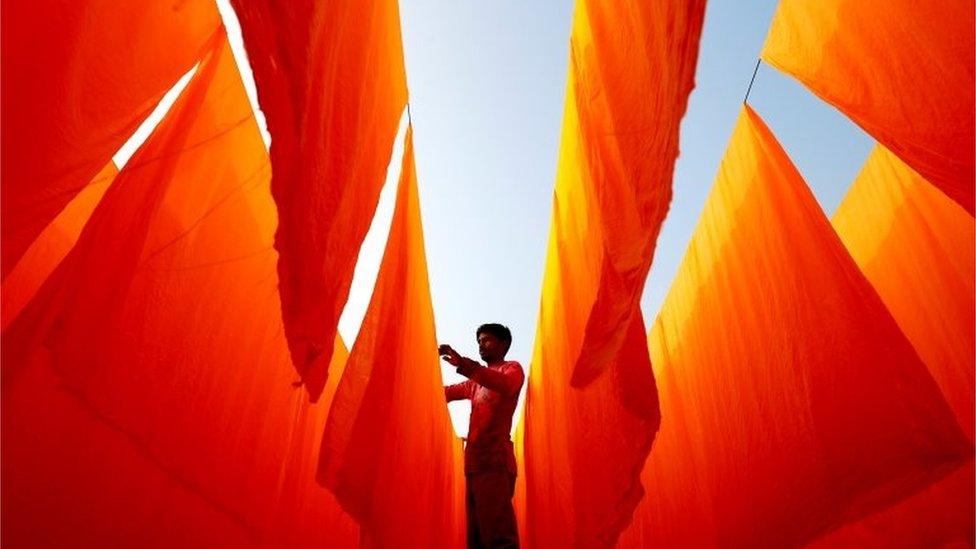Bangladesh election: Lopsided polls leave disillusioned voters asking 'what's the point'
- Published
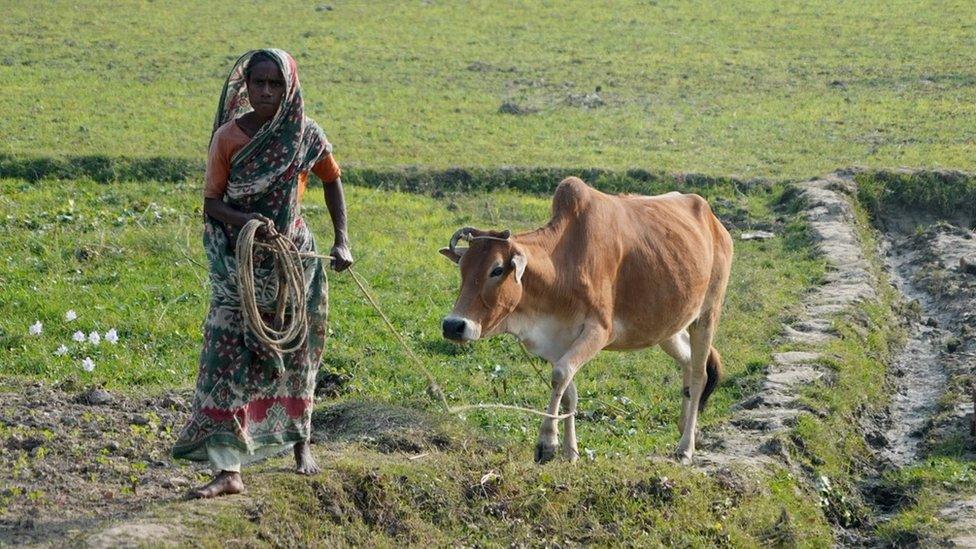
Millions of people in Bangladesh are struggling to survive in a cost of living crisis
Noor Bashar makes just 500 Bangladeshi taka ($4.50; £3.55) daily - half of what he needs to feed his family of nine.
That sum could shrink further as inflation in Bangladesh soars.
"People are really suffering," says the 43-year-old day labourer who lives in Cox's Bazaar, 400km (250 miles) south of the capital Dhaka.
"If I buy fish, I cannot buy spices. If I buy spices, I can't buy rice."
Bangladesh, a country of 170 million, is struggling in a cost-of-living crisis. The country's once-promising growth curve has dipped and graver challenges loom in the low-lying delta that is vulnerable to climate change.
But disillusioned voters have no hope that Sunday's election, which they say is a foregone conclusion, will improve their lives.
"My main aim is to feed my family. I don't care about politics as it will not feed my family. I'm always thinking about how I will would repay the loans which I borrowed from people," said Mr Bashar.
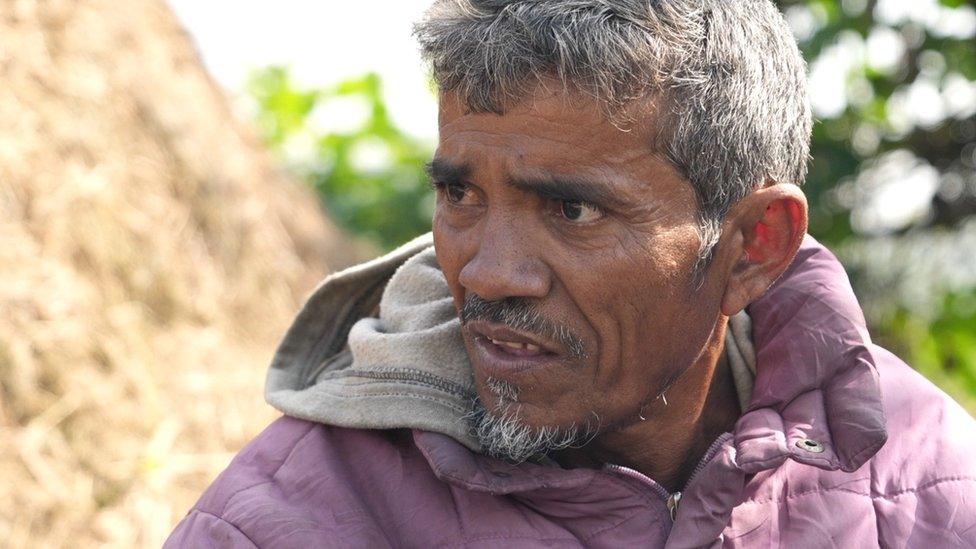
Noor Bashar, a day labourer, earns half of what he needs to feed his family of nine every day
The ruling Awami League led by Sheikh Hasina seems set to tighten its authoritarian grip with this election, which has been boycotted by the main opposition, the Bangladesh Nationalist Party (BNP).
This comes after Ms Hasina's government arrested tens of thousands of rival politicians and supporters, a move which rights groups have condemned as an attempt to paralyse the opposition ahead of the poll.
In the eyes of many voters, the Awami League has already won as there is no credible opposition candidate. Many fear that a fourth straight term for Ms Hasina would worsen the economic situation, deepening their despair.
"I don't have any interest in the elections. Why should I care? The outcome, whatever it is, will not change my fate," said Gias Uddin, a security guard in the port city of Chittagong.
The 57-year-old says his household's finances are so tight that his family can afford only two meals a day. He no longer buys fish or meat because they are too expensive and regularly collects others' leftovers to whip up meals for his nine children.
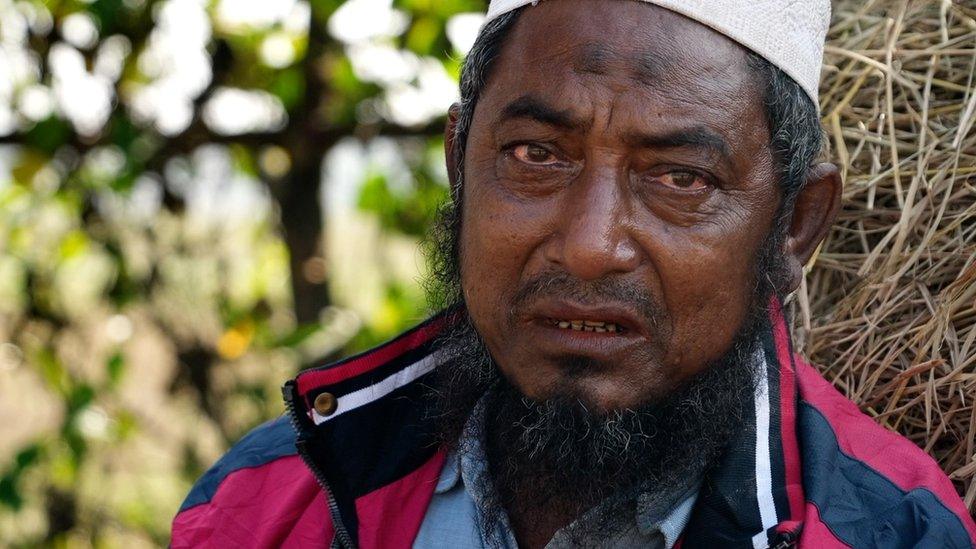
Gias Uddin in Chittagong says he takes no interest in the election as it "will not change my fate"
The family survives on charity and loans from friends.
"I have borrowed 200,000 taka so far. I don't know how I would repay the amount. Only God knows," Mr Uddin said.
"This is such a difficult situation. Sometimes I feel I should die."
Rags to riches - to rags again?
Some experts say the slide towards autocracy is one of the biggest threats to Bangladesh, which was grabbing headlines as an "economic miracle" just a few years ago.
Restoring confidence in the economy will be a challenge for the next government, says Debapriya Bhattacharya, an economist at the Centre for Policy Dialogue think tank in Dhaka.
"But it would be very difficult, because the government does not have the political strength to implement the policies required to bring stability."
In recent years, Bangladesh had seen strong economic growth.
Its garment industry, despite its dismal working conditions, has helped pull millions out of poverty and now account for some 80% of the country's exports - making it the world's second largest garment producer after China.
But the economy went into turmoil in mid-2022 following a global economic slowdown. People began to take to the streets as the foreign reserves were depleted because of an energy crisis and high inflation, triggering a balance of payments crisis. Inflation was around 9.5% in November, but some believe the figure is underreported.
In 2023, the International Monetary Fund - which once forecast that Bangladesh's gross domestic product could surpass that of advanced economies like Singapore and Hong Kong - approved a $4.7bn loan to boost its shaky economy.
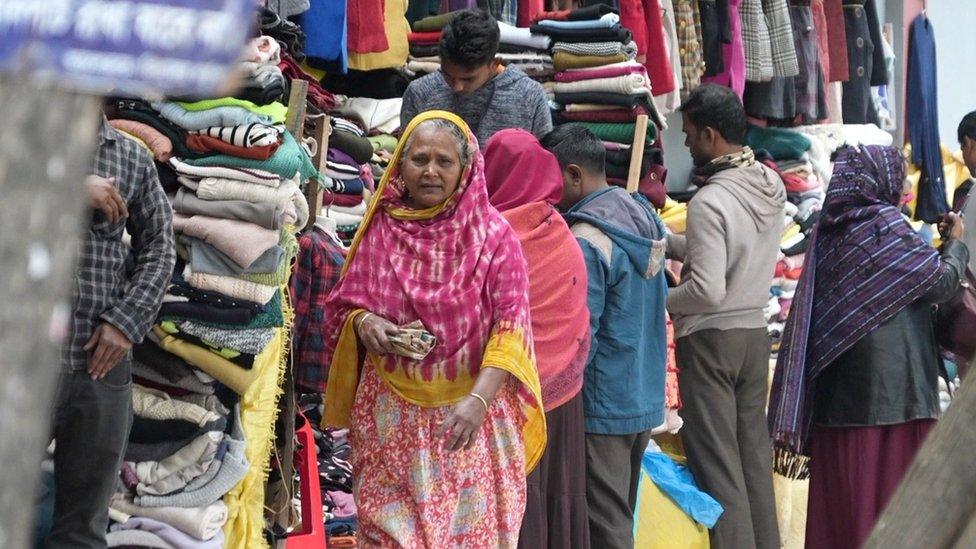
Bangladesh's garment industry helped pull millions out of poverty but its economy is now in turmoil
But experts have warned that Bangladesh's problems cannot be resolved so easily. While external factors contributed, many feel policymakers failed to address them or implement essential reforms.
The scourge of corruption, too, has been left unchecked. Transparency International ranked Bangladesh the 12th most corrupt among 180 countries in the world.
"The ruling party has no incentive to come down hard on corruption. And after this election, individuals and groups associated with them will remain influential," said Dr Bhattacharya.
As the country's debt grows heavier, the people at the bottom of the social ladder will continue to bear the brunt of the troubled economy, said Ali Riaz, a senior fellow at the Atlantic Council's South Asia Center.
"There are no checks and balances in any one-party state. Nobody holds the government to account as to how it spends money," said Prof Riaz.
There have been allegations of widespread vote-rigging in past elections, which the Awami League denied.
There is also concern that the state of human rights and democracy in Bangladesh could spur economic sanctions from key trading partners like the US and the European Union. Last September, Washington began imposing visa restrictions on Bangladeshi officials found culpable of undermining the country's democratic election process.
The brunt of climate change
Climate change is another major and equally urgent concern. Approximately two-thirds of Bangladesh is less than 5m above sea level. According to the Intergovernmental Panel on Climate Change, a 30- to 45-cm rise in sea level could displace more than 35 million people from coastal districts - about a quarter of the country's total population.
Tidal surges and cyclones are an increasing threat in the south-western district of Satkhira, where vegetables only grow in certain seasons or in rice sacks stuffed with compost because of the increasing salinity of the soil.
"Scarcity of pure drinking water is the biggest problem in our area. Salty water is all around us," said Shampa Goswami, a local resident.
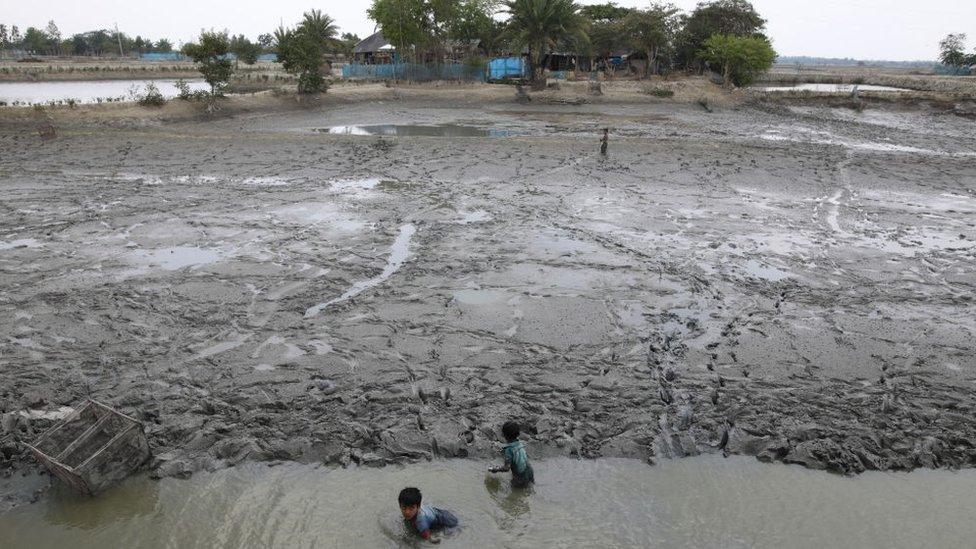
Clean drinking water is scarce in coastal districts like Satkhira
But climate has not been a priority in the election campaign, she said, adding that many people who live in rural areas are not well-educated about climate issues.
For Prof Riaz, this points back to the lack of a democratic process. "Unless you have a system that is accountable, you will not be able to address a crisis like this that calls for engagement with the common people," he said.
The country's governance has alternated between the Awami League and the BNP since military rule ended in 1991, and some citizens say both parties have made a mockery of democracy.
"Whoever is in power will basically do the same things. It is very difficult to decide who is the lesser of two evils. 'Democracy' in Bangladesh is defined in the country's leaders' terms," said AKM Mohsin, managing director of the Bangladesh Centre in Singapore.
"When they have the power, they cling on to it. But what Bangladesh really needs are leaders who help create opportunities for the people rather than take them away through mismanagement of the country."
Related topics
- Published15 September 2023
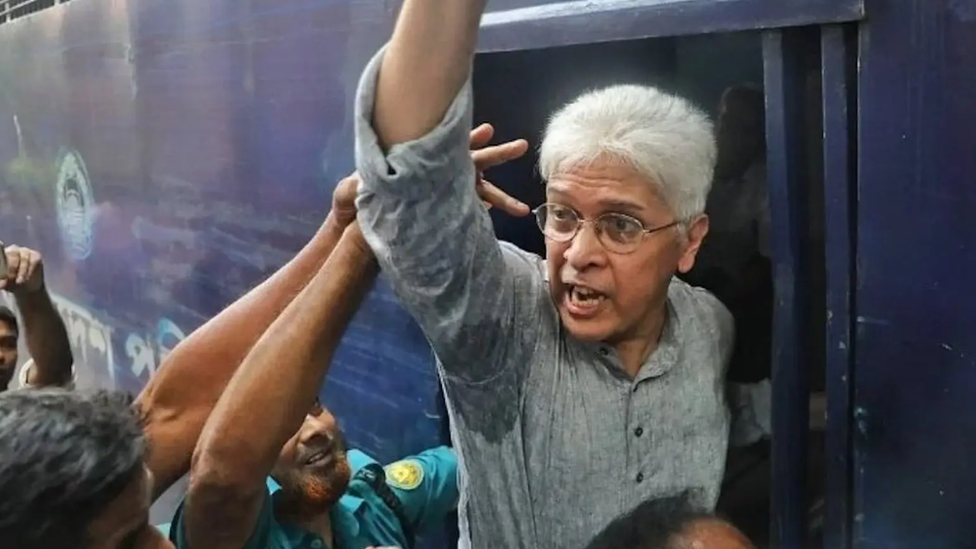
- Published30 March 2023
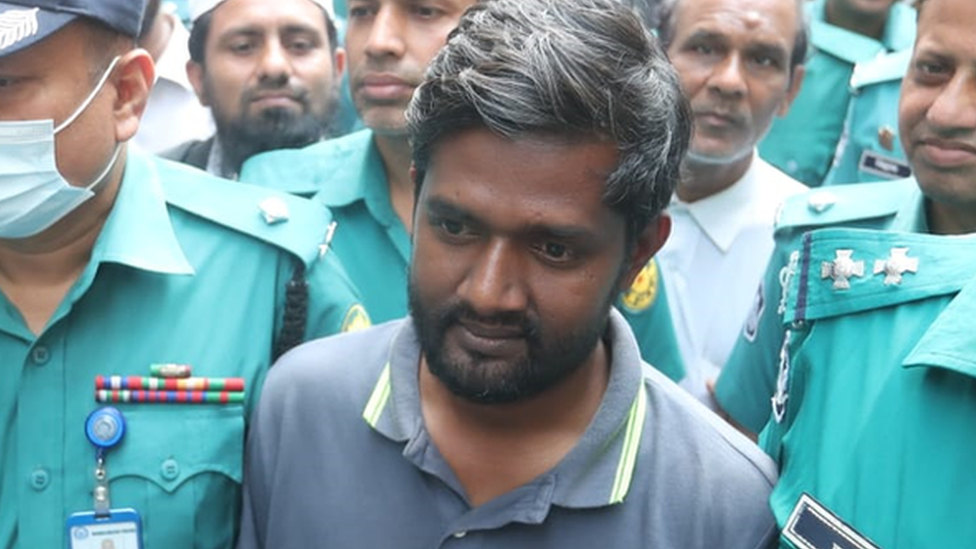
- Published24 March 2021
